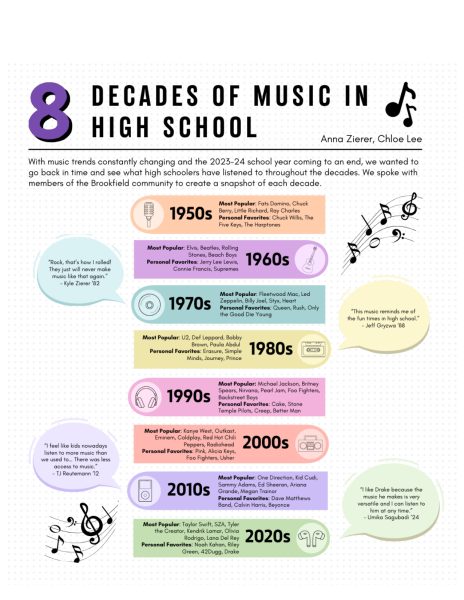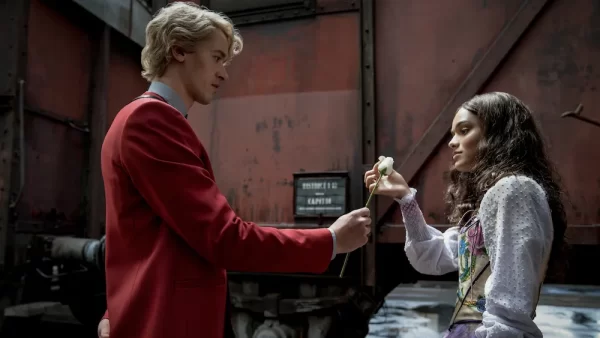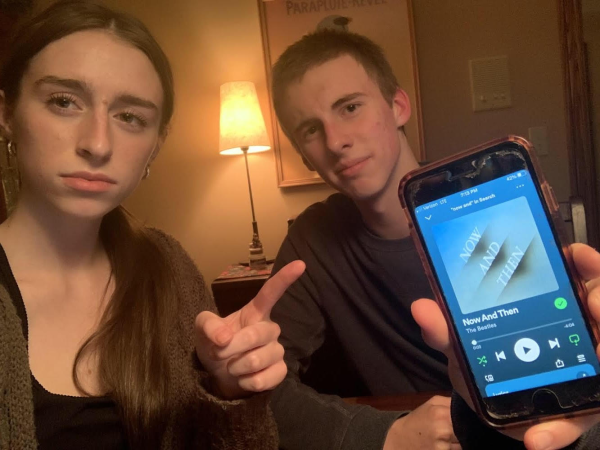(Taylor’s Version)
Taylor Swift has been America’s sweetheart and lyrical genius ever since the release of her self-titled debut album in 2006. Ever since, her career has been record breaking: climbing charts all over the world and impressing fans with her masterful, artistic songwriting and powerful verbiage.
On November 12, 2021, Swift released a re-recording of her 2012 album Red, titled Red (Taylor’s Version). The album has been an absolute success, gathering a total of 303 million streams within its first week of being released and earning its place as Swift’s fourth number one album in sixteen months (Folklore, Evermore, and Fearless (Taylor’s Version)). Along with the release of all thirty songs on her latest albums, she has released a music video, produced and acted in a short film (inspired by her song “All Too Well (10 Minute Version)(Taylor’s Version)(From the Vault)”), and released a second version of All Too Well, All Too Well (10 Minute Version)(Taylor’s Version)(From the Vault)”. These accomplishments are remarkable, and Swift certainly has been hard at work; however, why does she feel the need to re-record her previous work?
It all started back in 2005 when Swift signed a record deal with Big Machine Records, an up-and-coming record label, founded by record executive and CEO Scott Borschetta. Borschetta promised Swift that he would make her the country music star she had always dreamed of becoming. Swift released six studio albums under Big Machine Records’ ownership: Taylor Swift, Fearless, Speak Now, Red, 1989, and Reputation. Big Machine Records owns the masters (original recordings) of Swift’s first six albums, even after she transitioned to Universal’s Republic Records in 2018. Following her transition, Swift unknowingly left the rights to her masters in the hands of Big Machine Records, who refused to sell them to her and instead sold them to the private equity group Ithaca Holdings. Ithaca Holdings –owned by Scooter Braun, manager of artists like Kanye West and Justin Beiber– now has the rights and ownership to all of Swift’s first six albums and profits off of them as well. Any money from streams, downloads, or purchases of Swift’s original recordings of her first six albums profits Braun and Ithaca Holdings.
As a result, Swift made the decision to re-record her first six albums so she has the ownership of them and can profit off their success. These newly recorded albums keep the original album title, but add the parenthetical “Taylor’s Version” signifying they are owned by Swift. These new albums feature a newly reimagined album cover, but the same songs (including those from deluxe editions) that have been adored by millions. Additionally, Swift releases “vault” songs for every re-recorded album. These vault songs are songs she wrote at the time the original album was released, but never actually put on the track list.
So far, Swift has re-recorded Fearless (2008) in April 2021 and Red (2012) in November 2021. She has not yet announced when her next album will be re-released, but fans have their theories.
Swift is infamous for dropping “easter eggs” in her social media posts, music videos, interviews, and even in her lyrics. These “easter eggs” are subtle clues and references which can be pieced together to figure out information about her next release. Ever since Swift released her first album, she has been leaving secret messages for her fans to predict what’s coming next. Without conspirazing, we do know that Swift’s ninth studio album, Evermore, has recently been nominated for Album of the Year at the Grammys. Swift has already won eleven Grammys (32 nominations), and three previous Album of the Year awards (Fearless for 2009, 1989 for 2015, and, most recently, Folklore for 2020).
Swift’s career is one for the history books, as she has displayed impeccable talent from a young age, experimented with several genres of music throughout her career, and proven that adversity is a challenge she is willing to take on. Her battle with Braun and Big Machine Records is just one of many injustices she has dealt with throughout her career.
In 2009, Swift attended the VMA Awards and won an award for best female music video for her song “You Belong With Me” (Fearless). However, as Swift went on stage and began her acceptance speech for her award, rapper and producer Kanye West grabbed the microphone from Swift’s hands and proclaimed that Beyonce’s music video for her song “Sing Ladies” was “one of the best videos of all time” and deserved the award over Swift’s video.
Following the incident, Swift and West seemed to have made amends and moved past the situation. However, in 2016, West released a song titled “Famous,” in which he wrote “I made that b*tch famous” (referring to Swift). Harsh controversy came with the release of the song, as Swift claimed she had not approved West including such lyrics about her in his song. West’s then wife, Kim Kardashian, even went against Swift, stating in an interview that the line was “totally approved” by Swift and she “totally knew it was coming out.”
Kardashian later released an edited version of a phone call between Swift and West which triggered a mob of hatred and vitriol towards Swift in the media, especially online. However, Swift responded to Kardashian’s statement denying that she ever approved the lyrics to West’s songs and that the phone call recording was completely edited. Swift’s reputation was tainted from the scandal, her social media feeds were bombarded with snake emojis, resulting in Swift erasing her social media and going into hiding for a full year.
However, Swift used this setback as preparation for one of the greatest comebacks in the history of the music industry. In 2017, after no one physically saw her for a year, Swift released her sixth studio album, Reputation, whose motif was the snake: a nod to those who tainted her reputation. The album discusses at length the depth of the situation and the repercussions Swift faced trying to rebuild her credibility (reputation) in the music industry.
Swift strategically used her feud with West as inspiration for one of her most successful albums of all time. The Reputation Stadium Tour grossed $345.7 million in revenue, earning the title as the highest grossing tour ever in the United States and North America. Not only that, she used the stealing of her masters as an opportunity to relive the joys of her past albums and share new music with her fans. The (Taylor’s Version) franchise has allowed Swift to take back the ownership of her beloved first six studio albums, release new vault songs, and make a profit off her hard work. If there is one thing that Swift knows how to do, it’s turn a heartbreaking situation into a lyrical masterpiece.
Swift has touched millions of people around the world with her craft and continues to inspire young artists everywhere. She has shared her struggles with the world to promote the “do’s and don’ts” of the music industry and prevent what has happened to her from happening to others. Her brilliance is certainly reflected in her work, from her first song, “Tim McGraw,” to her ten minute version of the fan favorite “All Too Well”. Remember to stream Red (Taylor’s Version) and support Swift’s quest in taking back her masters.
Abbey is a junior at BCHS and is also involved in Student Council, Key Club and, Cross Country.
"I have always enjoyed writing and gathering/ organizing...











